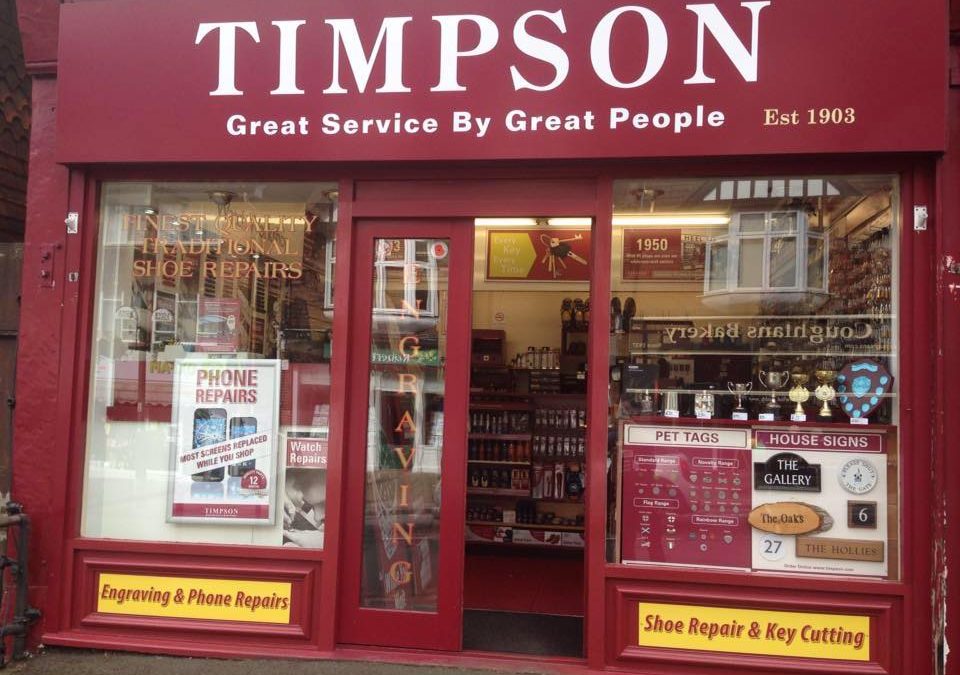In a recent article in the Huffington Post titled ‘Not all social investors are tree huggers (and vice versa)’ I explained why I am a firm believer that you can do well by doing good and that businesses could grow more sustainably if they integrated purpose into their mission. In fact I founded Growth4Good to shine a light on the amazing good news stories and best practice to support this.
Last week, I had the pleasure of meeting James Timpson of www.timpson.co.uk who are famous as cobblers but have a vibrant business that encompasses key cutting, photo printing, dry cleaning and much more. I’ve rarely met a more inspirational business leader who is living proof that the legendary employee oriented practices of the Wedgewoods, Cadbury’s, Leverhulmes etc are even more relevant today as being good for business, as they were in the past. Whilst too many businesses chase revenue and profit, the smart ones realise that these are the outputs of looking after your employees, your customers and the community/environment you operate in. Whilst I’ve spent most of my career in tech, James and his team have shown you can do well in low tech/no tech businesses where many of the incumbents have put up the white flag, by focusing on culture above all else.
Here are the top 7 things I learned – the inputs:
1. They only go into business they can understand – i.e. stick to your core competencies.
2. The organisation structure is upside down. Everybody is there to support the front line team in the shops. I was once a Director of a specialist cleaning business where the CEO maintained: “There is no such thing as a bad cleaner, just a bad manager”. I’ve carried this philosophy throughout my career. Timpson’s approach is for Area Managers to be rated on how well they support the front line, by the people they support and anything less than 8 out of 10 is unacceptable.
3. Colleagues (not called employees or staff) are given a very high level of discretion over pricing and ordering. The two golden rules are : 1. Put all money in the till 2. Look the part.
4. Sophisticated technology and “eagle eyed” finance people are not needed or welcome in this business as its culture is the foundation bedrock.
5. Almost all promotions are from within.
6. New colleagues are hired for attitude. A while back I used Mr Men descriptions as feedback to Russell Reynolds on some senior hires I made – I think they thought I was mad! I was delighted to see that Timpson has taken this to a new level with pictures and descriptions that define the attitudes they want vs those they don’t for all hires. Plus they ensure they have a long waiting list of new colleagues.
7. By far and away the most impressive aspect of Timpson is James’ focus on employing ex-offenders. As a kid my Dad did the same for his chauffeur driven car hire business and he maintained that they were the best, most loyal and honest people he’d ever employed. James has taken this to a whole new level with c10% of his 5,000+ colleagues being ex-offenders and training within prisons to prepare them for the world outside. The way this is managed is hugely inspirational and would be so good to see replicated elsewhere. It is clearly a key success factor.
So, does it work? Here are 3 of the top hard business outputs:
1. High levels of sustainable organic growth in sectors that others were declining in.
2. Above sector net margins and cashflow
3. Levels of colleague (employee) turnover well below the sector average.
So do you still think profit with purpose is a load of cobblers?
Do you have a story to tell about businesses doing well by doing good? Would you like to contribute to a blog post or write one yourself? Please do get in touch via growth4good@gmail.com and join the conversation on Twitter @growth4good
Photo by Timpson via Facebook

